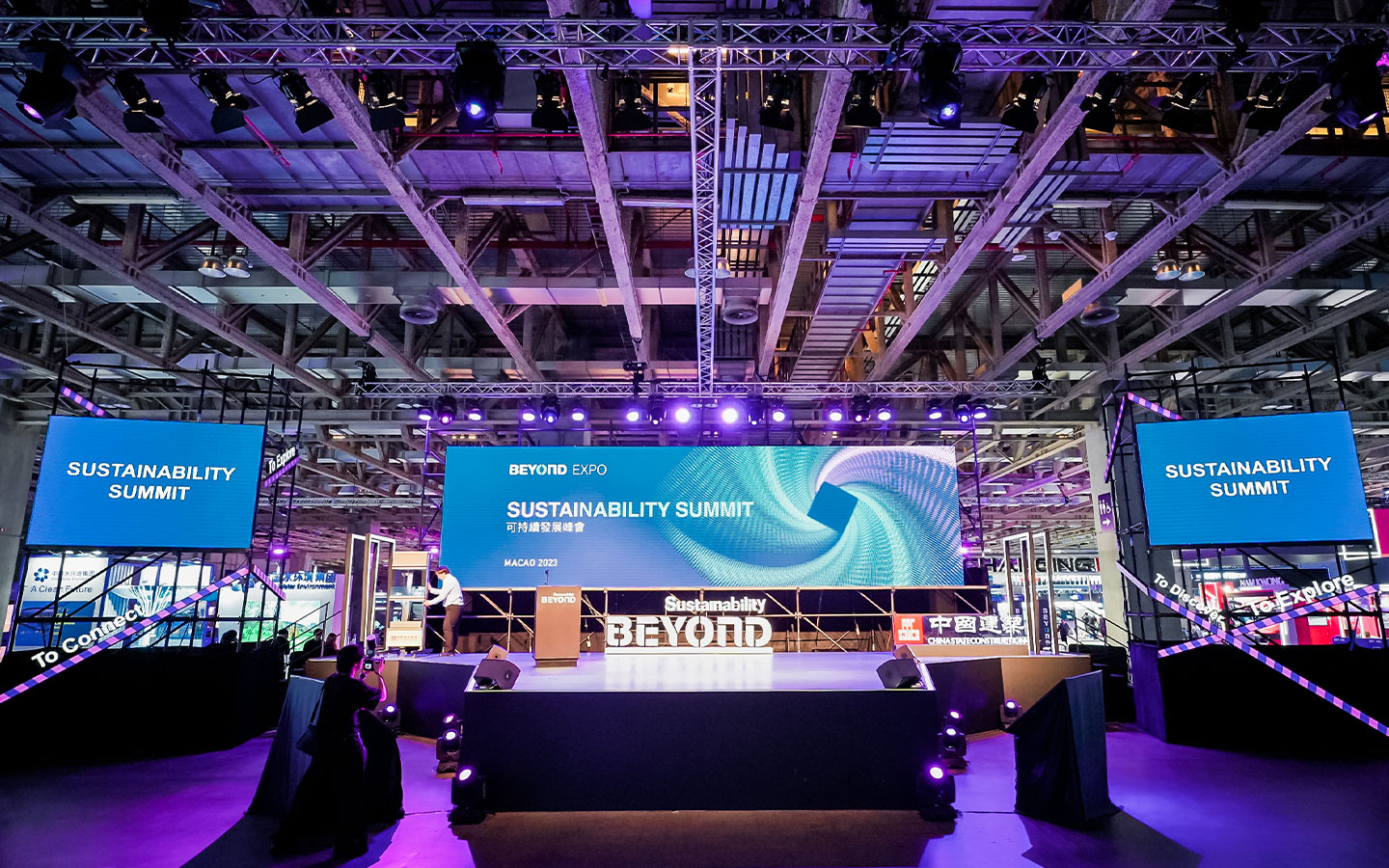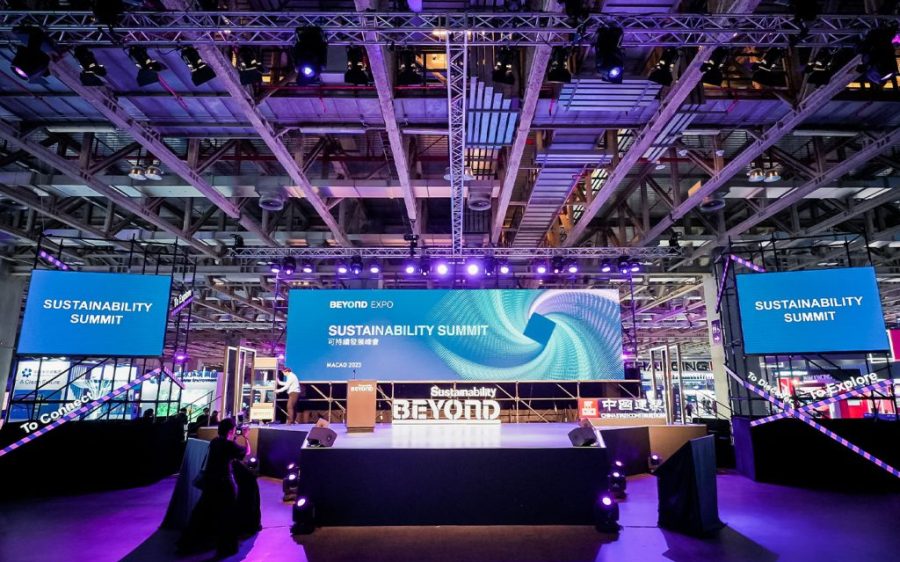The sustainability summit at the BEYOND International Technology and Innovation Expo 2023 held its opening session on Wednesday afternoon.
The three-day Beyond Expo, bringing together hundreds of top technology professionals, business figures and academics at the Venetian Macao, consists of three component conferences looking at the impact of technology on sustainability, consumer markets and healthcare.
The sustainability summit was opened by South African computer scientist, Prof. Tshilidzi Marwala, who is an under-secretary-general of the United Nations and the rector of the United Nations University.
Appearing by video, he told a select audience of some 30 delegates that discussion of sustainable development was crucial, along with the “affordability of technology so that no one is left behind”.
Three panel discussions followed, looking at the global carbon trading market, “impact investing” (that is, investments made in companies in order to achieve social or environmental goals alongside financial returns) and climate challenges in the wake of the Covid-19 pandemic.
[See more: How local researchers have taken the lead in macao’s sustainability movement]
The first panel was moderated by Max Song, CEO of Carbonbase – a Hong Kong company that helps organisations measure their environmental footprint. Taking part were Chai Qimin, the planning director of the National Center for Climate Change Strategy and International Cooperation; Meng Meng, general manager of the Guangzhou Emissions Exchange; Jeff Huang, managing director of emissions trader AEX; Cynthia Zhu, the head of international at Sinosynergy, and Julien Martin, the founder of Digital Climate Group.
Martin, whose organisation invests at the intersection of the digital asset and climate markets, drew attention to Asia’s share of “the overall carbon footprint of the world” which he said was “unfortunately growing”.
However, he also pointed to the Greater Bay Area, which is rapidly developing a market in green finance. “The issue and solution are here”, he said.
For Zhu, a possible answer lay in the adoption of hydrogen not just for transport but for power generation. “Asia is the region and area that is very brave to try new energy”, she told delegates. Once governments and stakeholders have a green light, “they will push for it and try new technology”.
Climate finance and post-pandemic challenges
In the following panel, HSBC’s Peter Dingle moderated a dialogue on impact investing between Cilia Indahl, CEO of EQT Foundation, and Joseph Zhou, the managing partner of Bits x Bites.
“For the companies we invest in, we look for companies that have a positive impact through their product and service”, Indahl said, “meaning the more they will make money, the more impact they will have, and the more impact they will have, the more money they will make”.
She said she expected the next unicorns would be climate tech companies. In response to a question on investor attitudes from Song of Carbonbase, she said that the maturity of investors had increased “from not knowing a lot of what impact investment was about”.
These days, she said, “it’s easier to raise funds”.
[See more: Is urban gardening an answer Macao’s been looking for?]
Meanwhile, Zhou said that sustainable approaches to development also lay in making better use of what we already have. He argued that science and technology, being “investable and transportable”, could be used to improve underutilised infrastructure.
The afternoon’s proceedings concluded with a dialogue between Prof. Saifur Rahman, president of Institute of Electrical and Electronics Engineers, and Prof. Yonghua Song, the rector of the University of Macau, on the ways in which Asia could address post-pandemic climate challenges.
“Global problems” demanded “global participation and global solutions”, Prof. Rahman said, calling on “all branches”, including governments and corporates, to “provide and accept solutions”. He also encouraged individuals to talk to their neighbours and associates, spreading awareness of the seriousness of climate change.
Prof. Song agreed, and took up the name of the conference, saying that tackling climate change needed to go “beyond technology, beyond policies, beyond politics”.
For him, “Education plays a key role”. The public, he said, needed “to understand the issue and work on it together” and added that his organisation, the University of Macau, had the responsibility to nurture talent and develop research as the only public university in the city.
The mission of BEYOND Expo 2023 is to “encourage exchanges of ideas” and “promote comprehensive industrial upgrading, development, and transformation, for a better global innovation ecology”.
The event is being held from 10-12 May at the Venetian Macao Convention and Exhibition Centre.
—With reporting by Almond Li
Macao News is an official Macao media partner of BEYOND Expo 2023.






